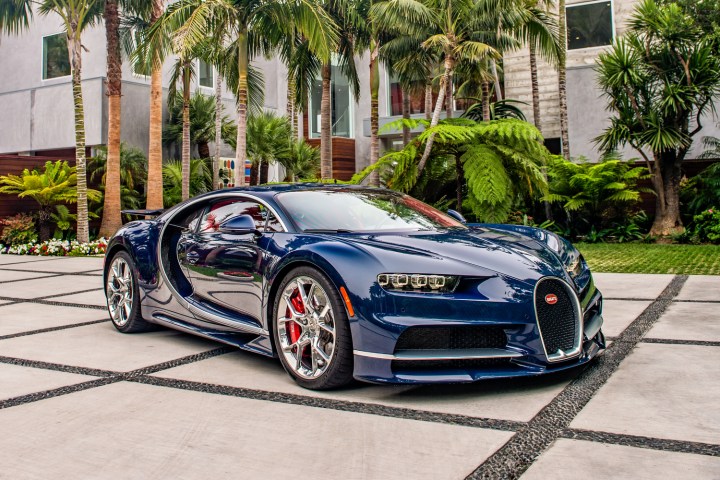
Bugatti is in the process of recalling the grand total of 47 Chirons (including 12 in North America) that have been delivered so far because the cars may have improperly welded seat brackets. But while most car owners get a letter in the mail with instructions to visit their local dealership at their earliest convenience, Bugatti does things a little differently.
Each Chiron owner will get a house call from a so-called “Flying Doctor,” who will inspect their cars to make sure everything is in order. If necessary, the car will be loaded on a truck and shipped to the nearest Bugatti service center, where the entire seat bracket assembly will be replaced, according to Bloomberg. Since this is a recall, all work will be done free of charge.
Apparently that’s the kind of service owners can expect when spending seven figures on a car. While one would expect that kind of money to entitle a customer to special treatment, the lengths Bugatti is going to avoid inconveniencing its owners may be unnecessary. Most owners probably don’t use their Chirons as daily drivers, after all.
While most Chirons likely won’t be driven often, the experience will always be memorable. Like its Veyron predecessor, Bugatti’s latest hypercar boasts an 8.0-liter quad-turbocharged W16, producing the aforementioned 1,500 hp, plus 1,180 pound-feet of torque. You definitely want to make sure the seats are securely fastened to the floor before unleashing all of that.
So far, the Chiron has proven capable of going from a standstill to 249 mph and back to 0 mph in just under 42 seconds, briefly giving Bugatti a world record until Koenigsegg beat it. The real question is whether the Chiron can achieve the highest top speed of any production car.
Bugatti believes the Chiron will beat the 267-mph top speed of the old Veyron Super Sport, but that hasn’t been independently verified. The Super Sport is still considered the world’s fastest production car by Guinness World Records. A Hennessey Venom GT hit 270 mph in 2014, but because the car didn’t make runs in both directions to compensate for wind, Guiness did not acknowledge it. Hennessey is now preparing an even faster car called the Venom F5, and is aiming for 300 mph.
Editors' Recommendations
- EV warranties aren’t like those for non-electric cars. Here’s what you should know
- 2023 Kia Niro EV first drive review: Practical doesn’t have to bore you to tears
- Hyundai, Kia recall half a million U.S. cars over fire risk
- Demand for PCs will stay strong in 2021, but the future doesn’t look as bright
- Super Resolution dramatically increases frame rates, but doesn’t require AMD GPU


